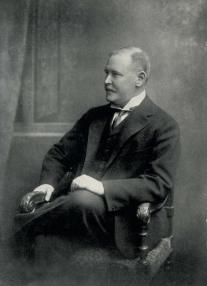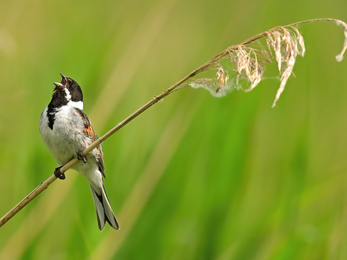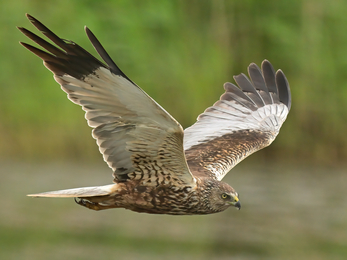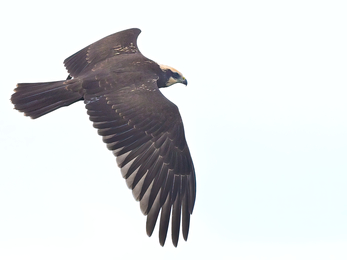With the celebration of World Wetland Day on Sunday 2 February, volunteer Rob takes a closer look at these special watery places and uncovers some of their star residents.
Wetlands are undoubtedly a conservation success story, and here in Staffordshire we’re very lucky to have some prime spots to visit. Staffordshire Wildlife Trust’s Tucklesholme nature reserve, near Barton-under-Needwood, plays host to a whole raft of waterfowl and waders. Over the past several years the Trust has transformed this former quarry into a key breeding spot for oystercatcher, skylark, shelduck and common sandpiper. More centrally, Doxey Marshes is a wetland oasis in Stafford and arguably one of the best birdwatching spots in the county.
But before we meet the wildlife, a little bit of history unfolds…I want to introduce you to Charles Rothschild. This is where the beginnings of The Wildlife Trusts set seed. Charles was part of the family dynasty who owned the historic Rothschild banking organisation, but when he wasn't juggling credits and debits, his focus was very much on the natural world. In the spring of 1912, he used his position of influence to draw together powerful, like-minded souls, with the purpose of creating a very special society; a society with the stated aim 'to urge by means of the press, personal efforts, and by correspondence with local societies and individuals, the desirability of preserving in perpetuity sites suitable for nature reserves'. Their plan was to identify wildlife areas deemed worthy of preservation and encourage others to acquire the sites and look after them.
On July 26 1912, the Society for the Promotion of Nature Reserves ('SPNR' which later became 'The Wildlife Trusts') held its first formal meeting, at the Natural History Museum. A list of 284 sites was drawn up, including Box Hill in Surrey, the coombs and cliffs of Cornwall (from Bude to Boscastle), Dovedale in Derbyshire, Puffin Island off Anglesey and the St Kilda archipelago. Rothschild's dream for the establishment of nature reserves throughout Britain was terrific, but sadly, through no fault of his own, his timing was less good. Just two years after that very first meeting, Britain went to war. Although Charles Rothschild never realised his full ambitions for the SPNR, his vision shaped nature conservation here in Britain onward into the next millennium.










